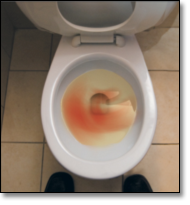

Temporary urinaryĬertain drinks, foods, and medications may act as diuretics - stimulating your bladder and increasing your volume of urine. A thoroughĮvaluation by your doctor can help determine what’s behind your incontinence. Habits, underlying medical conditions or physical problems. Incontinence isn’t a disease, it’s a symptom. Older adults as they rush to the toilet Causes Indicate a more serious underlying conditionĪctivities and limit your social interactions.Important to seek medical advice because urinary incontinence may: But if incontinence is frequent or is affecting your quality of life, it’s You may feel uncomfortable discussing incontinence with yourĭoctor.

You experience more than one type of urinary incontinence. For example, if you have severe arthritis, you may not be able to unbutton your pants quickly enough. A physical or mental impairment keeps you from making it to the toilet in time. You experience frequent or constant dribbling of urine due to a bladder that doesn’t empty completely. Urge incontinence may be caused by a minor condition, such as infection, or a more-severe condition such as a neurologic disorder or diabetes. You may need to urinate often, including throughout the night. You have a sudden, intense urge to urinate followed by an involuntary loss of urine. Urine leaks when you exert pressure on your bladder by coughing, sneezing, laughing, exercising or lifting something heavy. Medical treatment can ease discomfort or stop urinary incontinence SymptomsĮxperience occasional, minor leaks of urine. For most people, simple lifestyle changes or If urinary incontinence affects your daily activities,ĭon’t hesitate to see your doctor. More often as people get older, urinary incontinence isn’t an inevitableĬonsequence of aging. Sneeze to having an urge to urinate that’s so sudden and strong you don’t get to The severity ranges from occasionally leaking urine when you cough or Incontinence - the loss of bladder control - is a common and often embarrassing Former Alaska Urological Institute Patients.While not always preventable, your risk may be reduced by maintaining a healthy weight and avoiding bladder irritants, such as caffeine, alcohol and acidic foods, as well as avoiding or quitting smoking. In addition, neurological conditions, such as Parkinson’s disease, stroke or multiple sclerosis, may interfere with nerves involved in bladder control. Men with prostate problems, including enlarged prostate (also known as benign prostatic hyperplasia (BPH)), are at increased risk of urge and overflow incontinence. In some cases, surgery to remove excess prostate tissue may be recommended. Treating incontinence frequently involves making dietary changes, performing exercises to strengthen the pelvic floor muscles and medications (including alpha blockers). Overflow incontinence – which is the result of an overfull bladder, often without the urge to urinate.Urge incontinence, or overactive bladder – which causes an immediate need to urinate.Stress incontinence – which may occur while walking, jogging, laughing, coughing or during other normal activities.The three main types of incontinence men may experience are: IncontinenceĪccidental or involuntary urination is often a symptom of other urologic disorders. Avoid foods that are high in sodium and try to get your calcium from foods (milk, cheese, yogurt, etc.) rather than supplements. In severe cases, surgery may be suggested.ĭrink six to eight 8-ounce glasses of water every day (unless your doctor advises differently).

Tojuola recommends drinking lots of water and taking anti-inflammatory medicines. Bayo Tojuola, a urologist at Houston Methodist. “Small stones may pass on their own, but larger ones can lodge in the urinary tract, blocking the flow of urine and causing intense pain,” says Dr. The condition most often affects men between the ages of 30 and 50. About 12% of men experience kidney stones at some point in their lifetime. Kidney stones are caused when high levels of minerals, such as calcium, occur in urine. Knowing your risk factors and recognizing symptoms may help you avoid serious health problems.Ĭommon urologic conditions affecting men include: Kidney stones Male urology problems can range from mild inconveniences to life-threatening conditions.
#Overflow incontinence kidn3y stones series
This is the part one of a two-part series on common urologic conditions that affect men.


 0 kommentar(er)
0 kommentar(er)
